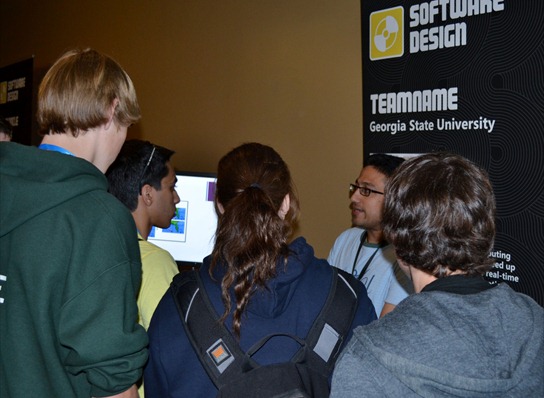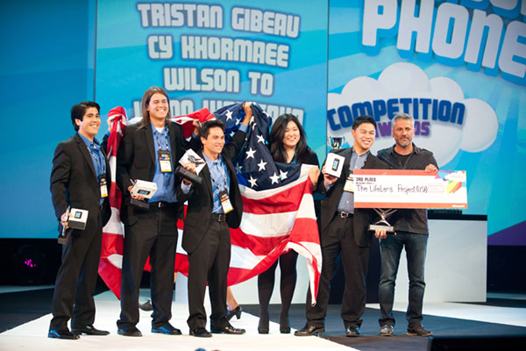Students are creating opportunities for all of us
By Lori Harnick, General Manager, Citizenship & Public Affairs, Microsoft
At just 26 years old, Wilson To has a plan to defeat malaria. And he’ll do it with a Windows Phone.
It’s an unlikely device for such a feat but it can be done. A student at University of California Davis, To is the team leader for a group of students who have developed an augmented app for Windows Phone that can detect this life-threatening disease. He participated last year in Microsoft’s global student technology competition, the Imagine Cup, which encourages students to help solve the world’s toughest problems.
Every year we see teams deciding to take their projects to market, and there was a lot of internal discussions about how Microsoft could provide teams with more support. Those discussions led to the creation of the Imagine Cup Grants program, a three-year, $3 million competitive grant program designed to provide students with the resources they need to transform their project into a commercial or nonprofit organization and most importantly bring the benefit of their technology to the people who need it most.
Georgia State University’s Imagine Cup team demonstrates their software design project at the U.S. Imagine Cup finals earlier today
Wilson and his fellow students in Team Lifelens were finalists at the 2011 Imagine Cup Worldwide Finals where the Imagine Cup grants were announced and in January 2012 they were named as one of four initial team recipients.
The Lifelens app has the power to transform global health. The app addresses the unacceptably high child mortality rates caused by the lack of detection and availability of treatment of malarial diseases. It has the potential to diagnose more diseases and enable the practice of care anywhere in the world. And with the grants funding, its possibilities have just begun.
Team Lifelens is using the Imagine Cup grant to fund further development of their project and lay the groundwork to transition what was once just an idea into a real world product. The investment is going toward distribution of their devices, subsidizing the phones and field testing. They are also preparing their IP/patent applications and plan to create a company to bring the technology to market in the near future.
Team Lifelens at the Imagine Cup World Finals in New York last year
Wilson has the small task of preparing for his college graduation in just a couple months’ time, but he’s not resting on his laurels. Today he attended the Imagine Cup U.S. Finals in Redmond as a mentor to a current U.S. Imagine Cup finalist team, New Game Plus. The team created a game design project that addresses deforestation and environmental sustainability and competed at the event today.
Through programs and initiatives like the Imagine Cup, Microsoft is committed to creating opportunities for youth through technology, training, and experiences that empower them to imagine and realize their full potential.
What will be the impact if we can empower more students such as these to transform imagination into reality and turn their ideas into real-world solutions with real-world benefits?
The possibilities are endless.
About the U.S. Imagine Cup U.S. finals
Earlier today Team FlashFood won first place in the U.S. Imagine Cup Software Design competition and will travel to Sydney, Australia, to represent the U.S. in the Imagine Cup Worldwide Finals this summer.
For more information on the Imagine Cup U.S Finals visit: https://www.imaginecup.us

